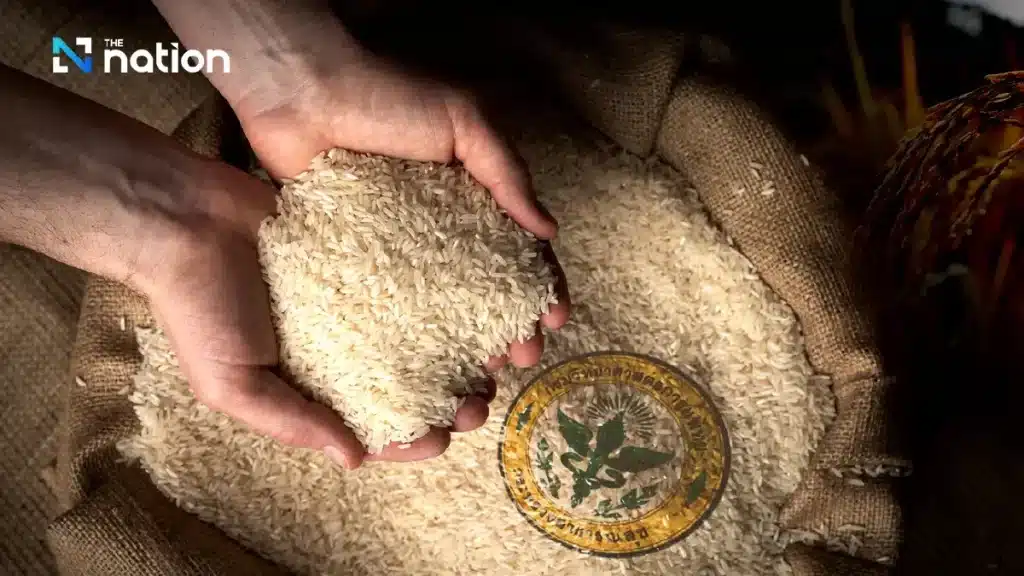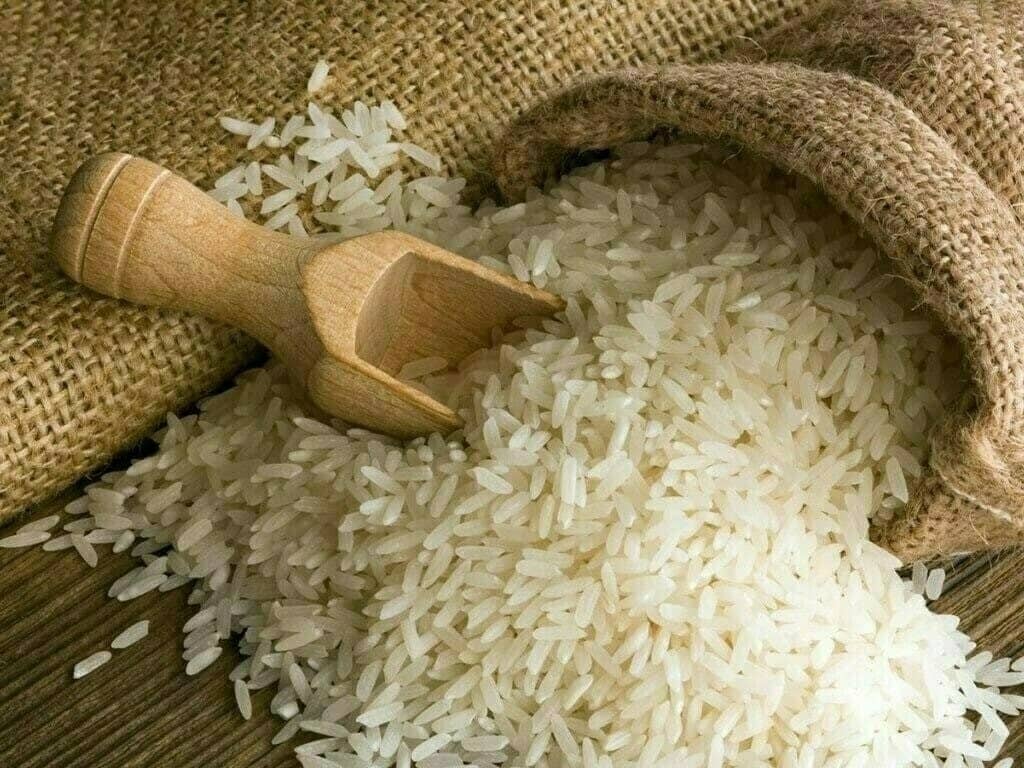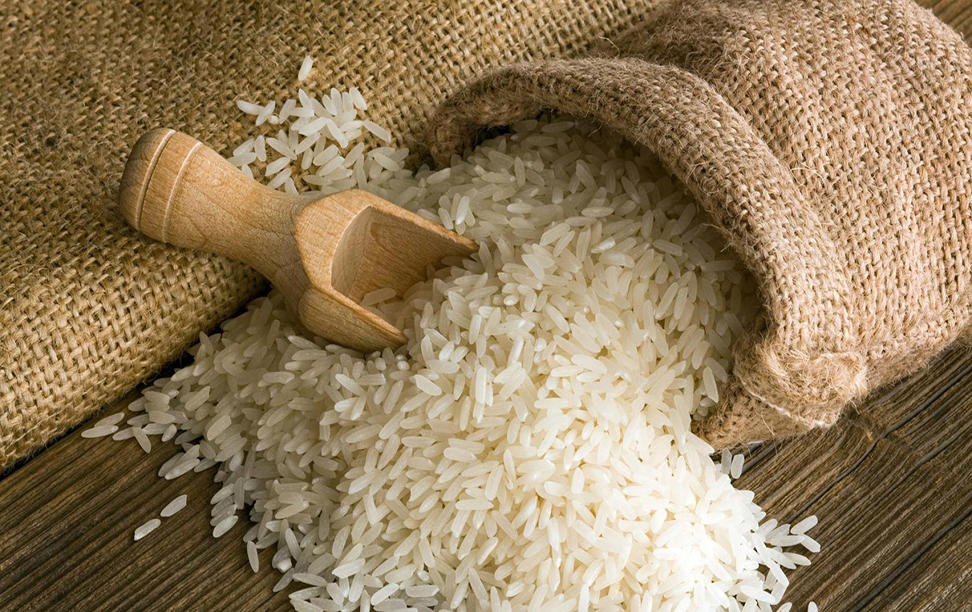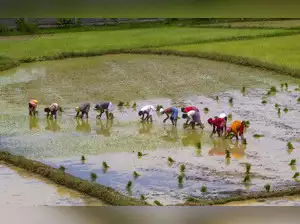Tags
DMS declares 10-year-old rice from Surin warehouses safe

Department of Medical Sciences guarantees 10-year-old rice from pledging scheme safe to eat
The Department of Medical Sciences on Monday announced that rice samples taken from two warehouses in Surin are safe for consumption as they are free from aflatoxin, germs and chemical contamination.
The safety guarantee by the DMS prompted the Public Warehouse Organisation (PWO) to announce that some 15,000 tonnes of jasmine rice at the two warehouses would be auctioned off before the end of this month.
The DMS released results of its lab tests on samples of rice taken from the two warehouses in Surin that have been storing the jasmine rice for 10 years under the rice pledging scheme of the former Yingluck Shinawtra government.

After the announcement by the DPS, government spokesman Chai Wacharonke immediately posted on his Facebook wall that the truth had finally come out.
Chai said in the post that he would like to apologise to the public that he could not clear up the confusion over the rice sooner as he had to wait for results of the tests by the DMS.
“I would like to thank [the DMS] for the truth even though we had to wait for it for a while amid misunderstanding [resulting] from incomplete information,” Chai said in the post.
“Now, the Department of Medical Sciences of the Public Health Ministry have released the test results that the 10-year-old rice was not contaminated and still has nutritional value for consumption.”

During a press conference at the DMS, Dr Yongyot Thammawut, director general, said the tests had been conducted under ISO/IEC 17025 standards.
Yongyot said the DMS conducted the tests on the rice samples from the two warehouses as provided by the Commerce Ministry against two control samples bought from rice shops near the Public Health Ministry.
He said the tests checked for physical conditions and possible contaminations of the rice by germs, preservative chemicals and dangerous heavy metals.
He said the checks on the two samples from the two warehouses found that they had a stale smell and had live weevils and pieces of other insects. Yongyot said the second control sample also had live weevils and pieces of insects.
He said that by the standard of jasmine rice set by the Agriculture Ministry that Thai quality jasmine rice must be free from insects and weevils, the rice samples from the two warehouses were substandard.
However, he said the rice samples from the two Surin warehouses passed the safety tests.
He said the two samples from the Commerce Ministry and the Control 2 sample tested negative for aflatoxin and seven other fungus types.
Only the Control 1 sample bought from a shop was found to be contaminated with Zearalenone, he said.
The DMS director general added that none of the four samples were found to have residues of preservative chemicals and none of them were found to be contaminated with herbicide chemicals.
He said all samples were found to have less than 0.009 milligramme of lead per kilogramme of rice, which was safe compared with the limit of 0.2mg/kg set by the Public Health Ministry.
None of them were found to be contaminated with cadmium or tin.
Yongyot added that all samples were also found to have lower than 0.20 milligramme of arsenic per kilogramme of rice, so they were considered safe by the standard of the Public Health Ministry.
He said the test on nutritional value found that all four samples had similar values as jasmine rice, with calcium, iron, magnesium, Vitamin B1 and B2 and other values.
When asked by reporters whether the test could confirm that the rice was really kept for 10 years, Yongyot replied that there was no way for the DMS lab to test the age of the rice.
Speaking at the same press conference, Internal Trade Department director general Watanasak Sua-iam assured reporters that the test samples came from the two warehouses in Surin used to store the last stockpile of the rice-pledging scheme’s rice.
He said the Kittichai Warehouse was storing 11,665 tonnes of rice and Poonphol Warehouse 3,356.59 tonnes.
He said the sampling of rice for tests was done with transparency and an independent surveyor, whose head office is in Switzerland, was hired to sample the rice for tests in line with standard methods.
“I hereby guarantee that the process is transparent and it was done by a standard surveyor,” Watanasak said.
Also at the same press conference, PWO acting director general Krissanarak Jaidee said a PWO committee was drafting terms of reference for putting the rice up for auction.
He said the auction will be held this month.
Published Date: May 20, 2024







